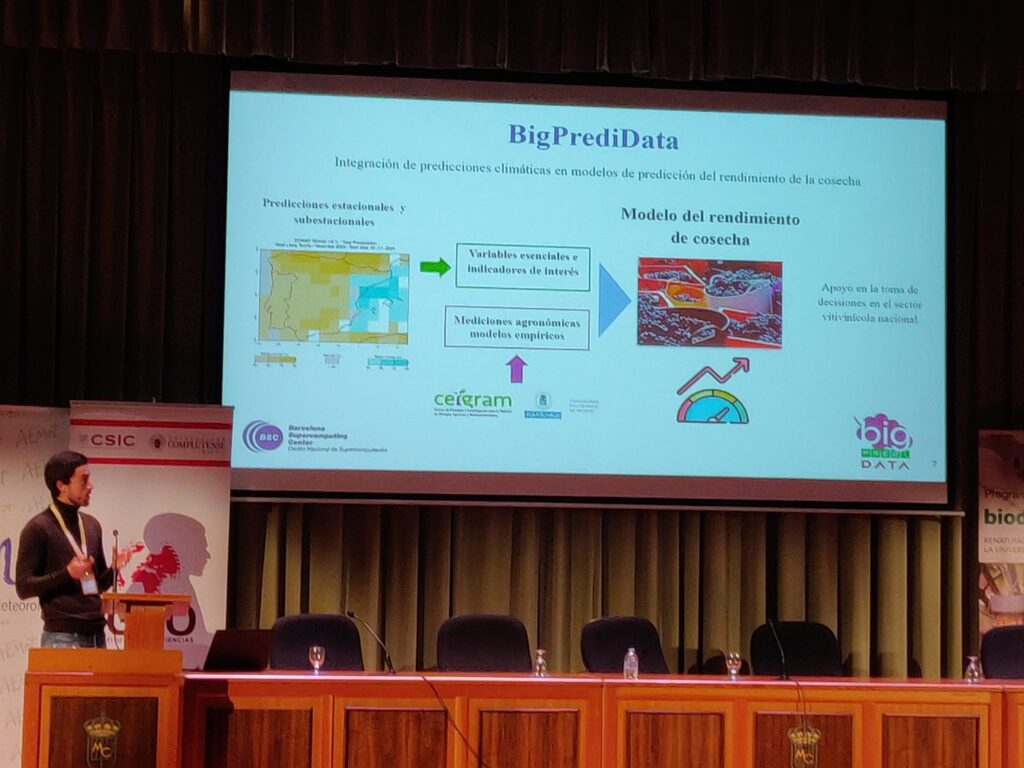The Real Centro Universitario María Cristina, in San Lorenzo de El Escorial, was the venue for the XIII International Congress of the Spanish Association of Climatology (AEC), an event that brought together experts from all over Spain to discuss climate science and its impact on society. With the slogan “From basic science to climate services”, the Congress served as a space for the exchange of knowledge and collaboration between researchers, institutions and professionals from various fields.
The congress addressed crucial topics such as climate models and scenarios, variability and extreme events, social vulnerability to climate change, and the development of climate services. These areas are fundamental to understanding the challenges of global change and promoting adaptation and mitigation policies.
The XIII International AEC Congress has become an essential forum for the advancement of scientific knowledge in climatology, where the interaction between basic and applied science allows the development of useful tools for society. In a context of climate crisis, events like this one promote interdisciplinary collaboration and the co-creation of solutions between researchers, policy makers and productive sectors.
Synergies between Research Centers

Among the many sessions and posters that were shared during the three days of the Congress, we wanted to highlight some moments in which the presence of CEIGRAM was noticeable.
During the session entitled: “Co-production of climate services at different time scales for decision making in the wine sector” organized by the Barcelona Supercomputing Center, the BIGPREDIDATA Project was mentioned, an initiative that seeks to integrate climate projections in predictive models of wine yield. This project, with the active participation of CEIGRAM, is focused on improving the sustainability and competitiveness of the wine sector through 4.0 technologies.
CEIGRAM plays a key role in BIGPREDIDATA, leading the analysis and modeling tasks. Currently, the Viticulture Research Group team, led by Pilar Baeza, has already begun field work and preliminary data analysis. For its part, the BSC, known for its experience in large-scale simulations, brings to the project its capacity to process high-resolution climate data and develop tools adapted to the needs of the industry.

Pasture and climate change research

Another highlight was the presentation of the poster “Analysis of Pasture Biomass Projections under Climate Change Scenarios in the Community of Madrid, Spain” by Marcos Aragón Pizarro. This study, developed together with Ernesto Sanz, Ana Tarquis, Andrés Almeida and Carlos Gregorio Hernández, analyzes the evolution of grassland biomass in the Community of Madrid under different climate scenarios.
The paper evaluates three regions (north, center and south) using daily climate data obtained from AEMET and projections based on IPCC AR6. Through the SIMPAST model, developed by Carlos Gregorio Hernández, it predicts how pastures could change as a function of future climate conditions. Preliminary results highlight the importance of validating these models with field work and cataloging key species to ensure the sustainability of these ecosystems.
First results of the AGUAGRADA Project

The AGUAGRADA project team, represented by Maite Jiménez, Sofía Garde and Ana Tarquis, also had an outstanding participation in the congress with the presentation of the poster “Water Demand for Agricultural Use under Climate Change Scenarios”. This work analyzes the impact of climate change on agricultural water use, focusing on rainfed barley in the Arroyo la Balisa sub-basin (Segovia).
Using six global climate models and IPCC scenarios (SSP4.5 and SSP8.5), the results show that, while increased CO2 could improve water productivity in moderate scenarios, the negative effects of extreme global warming could outweigh any potential benefits. This project highlights the importance of adopting adaptation strategies, such as heat-resistant varieties and efficient irrigation practices, to ensure the sustainability of the agricultural sector.
AGUAGRADA has the support of the Fundación Biodiversidad of the Ministry for Ecological Transition and the Demographic Challenge, through the Call for grants for the implementation of projects that contribute to the implementation of the National Plan for Adaptation to Climate Change (2021-2030).

CEIGRAM’s commitment
CEIGRAM’s participation in this congress reflects its commitment to research excellence and its contribution to the development of solutions to the challenges of climate change. In both local and global projects, the center continues to consolidate its position as a benchmark in the analysis, modeling and transfer of knowledge in the agricultural and environmental fields.



